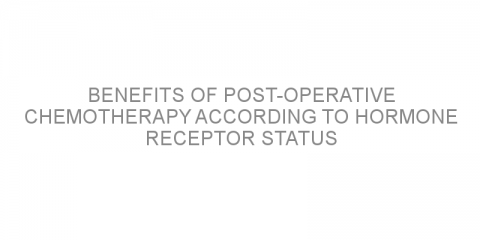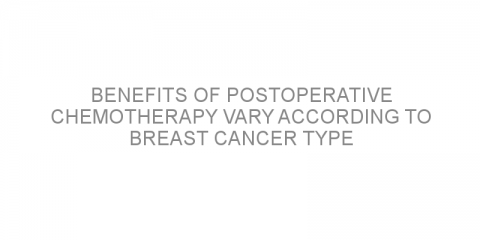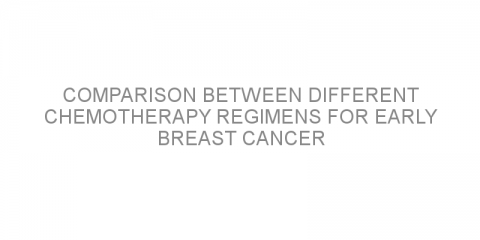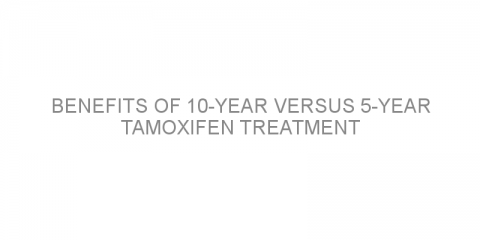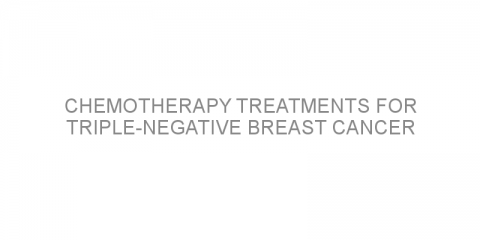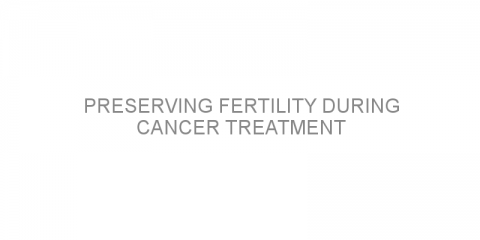In a nutshell This study evaluated the risk of heart disease associated with two commonly prescribed treatments for breast cancer. The main finding was that Trastuzumab (Herceptin) and Anthracycline (Adriamycin/Daunomycin) treatments are associated with a higher risk of heart failure or ‘cardiomyopathy’. Some background Anthracyclines...
Read MoreConfined or spread disease-Spread to regional lymph nodes Posts on Medivizor
Phase I trial to determine the safety of a new anti-cancer drug: PD 0332991
In a nutshell This article presents the results from the first human trial of PD 0332991, a new anti-cancer drug. The main objective of the study was to determine the safety and recommended dose for further testing. Results warrant further studies and revealed that neutropenia (low white cell count) was the main side effect. Some background Cells...
Read MorePersonalizing breast cancer treatment based on the genetic “finger-print” of the tumor
This article discusses how tests such as the Oncotype DX or Mammaprint can be used to design individual treatment plans for patients with breast cancer. Patients with stage I and stage II breast cancer are treated similarly. Following surgical removal of a breast tumor, systemic (body-wide) treatment is often used. This secondary treatment is...
Read MoreBenefits of post-operative chemotherapy according to hormone receptor status
In a nutshell This study compared the benefits of chemotherapy according to hormone receptor status. The main findings were: In cancers without hormone receptors, the benefits of adding chemotherapy were significant; In cancers with hormone receptors, chemotherapy only offered modest improvement. Some background Some...
Read MoreBenefits of postoperative chemotherapy vary according to breast cancer type
In a nutshell This study questioned the benefit of adding chemotherapy to postoperative hormonal treatment in the case of lobular breast cancer. Their findings were that chemotherapy seems to offer no additional beneficial effects in women with lobular breast cancer receiving hormonal therapy. Some background There are two main types of breast...
Read MoreComparison between different chemotherapy regimens for early breast cancer
In a nutshell The present study compared the long-term efficacy and safety of different adjuvant chemotherapy regimens for breast cancer. Main results: chemotherapy clearly provides survival benefits; the higher the dosage, the higher the survival rates, despite more toxicity. Some background Many women with early stage breast cancer receive...
Read MoreBenefits of 10-year versus 5-year Tamoxifen treatment
In a nutshell Tamoxifen treatment is given to many breast cancer patients after surgery to prevent recurrences and improve survival. It is usually given for a maximum of 5 years. This study determined that longer treatments offer further survival benefit. Some background Tamoxifen is a drug used against breast cancers which produce...
Read MorePostoperative radiotherapy prevents breast cancer recurrence and prolongs survival
In a nutshell This study evaluated if strategies to prevent cancer recurrence are associated with prolonged survival 15 years after treatment. Their main findings were that postoperative radiation managed to prevent cancer recurrence and was associated with higher rates of long-term survival. Some background Early breast cancer is often treated...
Read MoreEvaluating the addition of Capecitabine to postoperative standard chemotherapy
In a nutshell This article presents summarized data from two clinical trials. The trials evaluated the addition of Capecitabine to standard postoperative chemotherapy for patients with high risk early breast cancer. Some background Capecitabine is a chemotherapy drug that is taken orally and slows the growth of tumors. It can be...
Read MoreChemotherapy Treatments For Triple-Negative Breast Cancer
This paper reviews chemotherapy options for triple-negative breast cancers. Breast cancer cells express 3 main receptors that can be targeted with therapy: Estrogen receptors (ER), Progesterone receptors (PR) and HER2. Triple-negative breast cancers (TNBCs) do not express these 3 receptors and make up approximately 15% of breast cancers. Such tumors do...
Read MorePreserving Fertility during Cancer Treatment
In a nutshell This paper reviews available options for having children after cancer treatment. The main conclusion is that sperm, egg and embryo preservation techniques can help young women have children after breast cancer treatment. Alternative options, such as ovarian tissue preservation, are also being developed. Some background...
Read MoreExtended versus Targeted Lymph Node Surgery for Invasive Breast Cancer
In a nutshell This study compared survival rates for two surgical strategies in treating invasive breast cancer. The main finding was that the targeted Sentinel Lymph Node Dissection (SLND) procedure was just as effective as the traditional Axillary Lymph Node Dissection (ALND) surgery. Some background Lymph from the breast drains...
Read More



